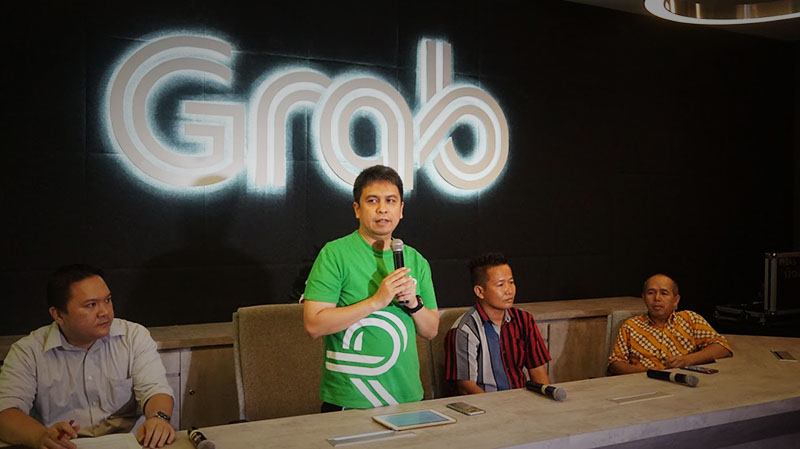
Ridzki Kramadibrata, managing director of Grab, speaking on behalf of Grab, Go-Jek, and Uber, at a press conference today.
Almost a year ago, Indonesia’s ministry of transportation released rules for ride-hailing apps (PDF).
This acknowledged the legality of ride-hailing in Indonesia for the first time. But the rules also spelled out requirements, for example road safety certificates for all cars. Ride-hailing startups were given six months to comply, and this phase was extended by another six months. April 2017 is when the rules come into full effect.
Just in time, discussions over the legality and requirements for ride-hailing flared up again. It’s complicated.
Under mounting pressure from traditional transportation operators, such as taxis and mini buses, the minister of transportation made amendments to last year’s regulation. These include giving the government power to limit fleet sizes and setting minimum and maximum fares for rides.
Side-by-side
The whole thing doesn’t sit well with Grab, Uber, and Go-Jek – the three biggest ride-hailing operators in the country. Facing a shared threat, they put rivalries aside for a moment.
At a press conference hosted by Grab today, Ridzki Kramadibrata, managing director of Grab Indonesia, said the three companies co-signed a letter to the ministry.
Their key demands to the government are:
- More efficiency in the procedure to acquire road safety certification (known as KIR)
- To reconsider introducing a limit on the number of cars allowed to join ride-hailing fleets
- To reconsider introducing caps to the minimum and maximum fares charged by apps
- To reconsider making it necessary for drivers to register cars under the name of a company or cooperative
The past year has been a confusing tug of war for the ride-hailing companies. There’s the public’s demand for ride-hailing services on one side, traditional transportation providers protecting their interests on the other, and various government regulations in the middle – throwing their weight behind either side.
Tough time ahead
It’s likely going to stay messy after the April deadline is reached.
Ambitions to make Indonesia Southeast Asia’s leading digital economy come all the way from the top. Limiting ride-hailing apps to the point where they could consider pressing pause – which happened in Taiwan – is unlikely.
On the other hand, individual cities like Yogyakarta have threatened to disregard the central governemnt’s legal framework entirely, and to override it with their own, city-level ban.
Granted, Indonesia’s far from being the only country with a tumultuous relationship to ride-hailing.
Even in the US – Uber’s birthplace – certain cities have banned the app. One example is Austin, the city that hosts the South by Southwest Festival, one of the top international events celebrating technology and innovation.
This post New regulatory hurdles in Indonesia bring Grab, Uber, and Go-Jek together in protest appeared first on Tech in Asia.